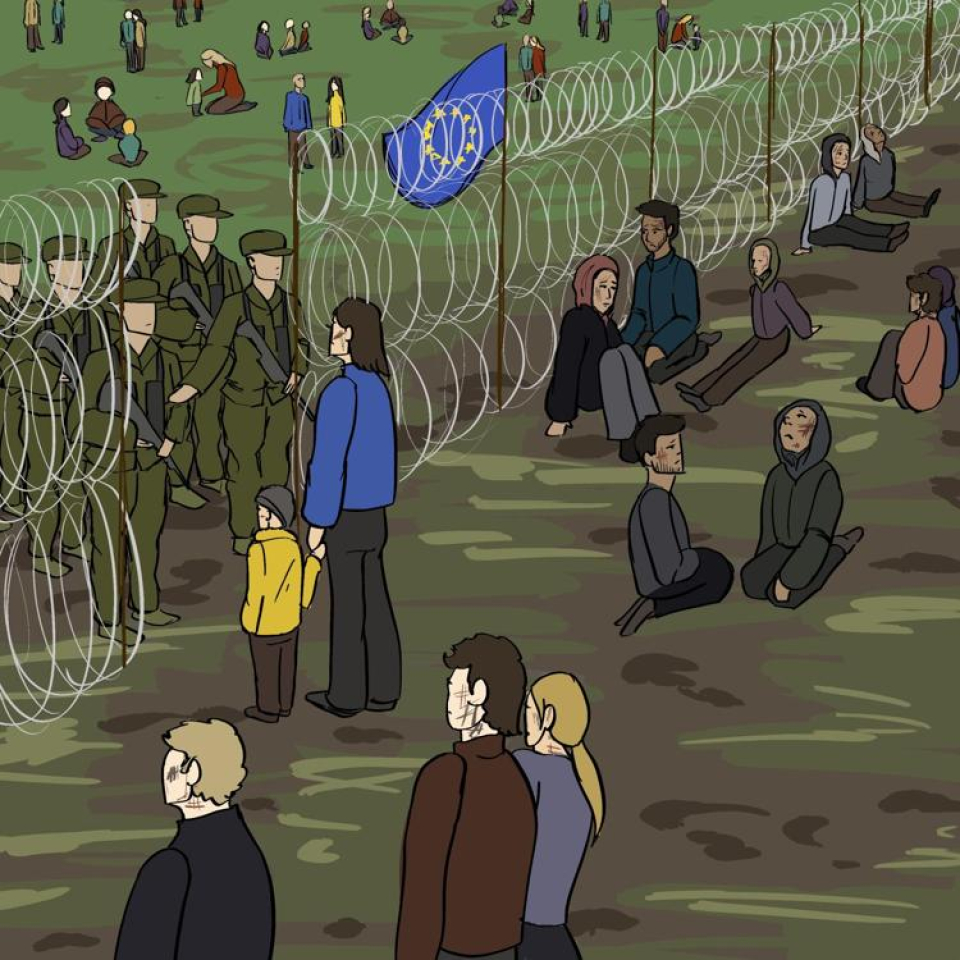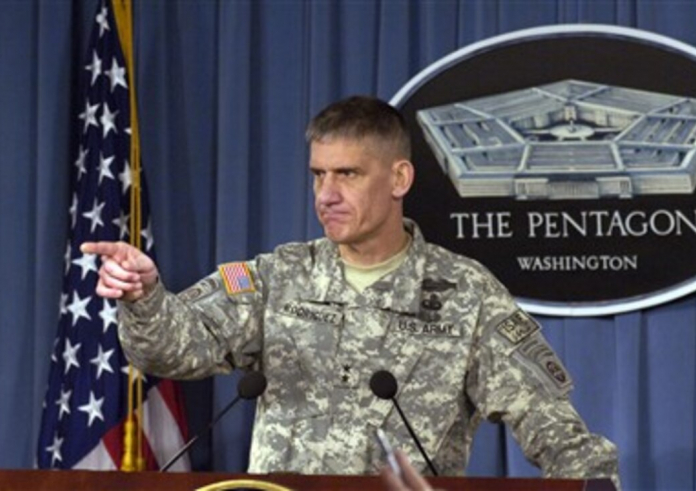by Hugo Rios Source: DailyTitan
Devastating imagery showing the ongoing Russian invasion of Ukraine has opened the hearts of many worldwide for the more than 3 million Ukrainians fleeing for their livelihoods.
Being embraced by surrounding countries with open arms, the empathy shown toward Ukrainian refugees shines light on a well-known crisis; refugees around the world remain helpless, for compassion is limited to the perception of those being cared for.
The growing refugee crisis plaguing the world is at an all-time high. According to the United Nations, more than 82 million people around the globe are displaced due to war, persecution, violence and other conflicts.
Middle Eastern and North African regions make up the most significant portion of those displaced, notably war-torn countries such as Syria, having the largest population of migrants seeking refuge. More than 12 million people from Syria, being displaced internally and around the world, rely on little to no resources as the European Union and other resourceful nations continue to curb aid as seen fit.
Countries like Jordan and Turkey — the latter hosting the most refugees globally — have graciously allocated resources and allowed Syrians access to social services. While they are not the only nations to do so, it is bewildering to think that countries with far fewer assets and supplies are shouldering the crisis's brunt.
There is an aspect of the refugee crisis purposely overlooked despite its brazen heinousness: Muslims seeking refuge are not welcomed in the same capacity as their European counterparts in countries that are more than capable of assisting.
World leaders are awfully transparent in their preference to take in Ukrainian refugees versus others desperately waiting for a sliver of hope to be thrown in their direction. Representatives from various European countries, including Spain, France and Bulgaria to name a few, openly express how Ukrainians are viewed as Europeans rather than invaders.
Mehdi Hasan, a political journalist and host of "The Mehdi Hasan Show," streaming on Peacock, has relentlessly probed former and current European officials regarding the hypocrisy in accepting the influx of Ukrainians.
In an interview with the former French ambassador to the U.S. Gerard Araud, Hasan rightfully pointed out, “President Macron back in August last year said 'France had to protect itself from a wave of migrants from Afghanistan. Poland and Hungary opened borders to Ukrainians, but closed them to Afghans and Syrians. Many would say ‘What is that, if not straight up racism?’”
The exchange highlights how when it comes to Middle Eastern people, the narrative becomes that of intruders stealing resources, in which governments must act defensive. However, this is not the case regarding Ukrainian refugees.
Trends in other countries outside the EU further demonstrate the lack of empathy toward migrants.
According to the Pew Research Center, the U.S. in 2019 admitted nearly 24,000 Christian refugees and less than 5,000 Muslim and other religious refugees. Trump-era policies, such as Title 42 deterring migrants from the U.S.'s southern border, perpetuate disgusting viewpoints regarding refugees of color and deserve a share of the blame. Though, the issue is rooted in a more profound understanding of race.
Hasan addressed his beliefs as the root cause of the problem in a guest appearance on “Pod Save America,” a podcast hosted by Crooked Media.
“If you want to ask why it is that we can take in Ukrainian refugees and not Syrian or Afghan refugees, the reason is very simple,” Hasan said. “The islamophobia climate in this country that was fueled for the past 20 years by a combination of terrorists attacks by terrorists groups and by right-wing politicians and some liberal politicians fueling islamophic myths, is that we think brown people are secret terrorists.”
To be clear, the togetherness world leaders and humanitarians have shown to Ukrainian refugees is remarkable. Downplaying the impact European countries have in protecting people from neighboring countries diminishes the lessons and tragedies learned post-WWII.
Poland, Hungary, Romania and other bordering nations took responsibility in opening their borders, saving millions of lives — an act that seems less of a burden when considering the historical context. Even the British public, people who are familiar with overpowering institutions displacing individuals, expressed their commitment in protecting refugees from Ukraine.

Meanwhile, the U.S. State Department said it will work with the United Nations in fostering Ukrainian refugees depending on need, “bearing in mind that resettlement to the United States is not a quick process.”
Abandoning Muslim refugees that are simply trying to save their own lives is a persistent problem the globe attempts to dance around. Belarusian president, also known as “Europe's last dictator” Alexander Lukashenko, fabricated a crisis at EU borders in Poland, Latvia and Lithuania that unintentionally, or perhaps intentionally, showed how European nations would forgo the rights of migrants forcefully displaced for the sake of protecting borders.
The U.S. also deserves to be critically ridiculed, considering the role leadership played in creating chaos among refugees, because loyal Afghans and innocent people from Libya and Yemen are still suffering from little aid.
Ukrainian refugees being welcomed by bordering countries with little hesitation is a relief that is soothing to minds filled with despair. However, all refugees still need safety, and providing aid will take more than humanitarian efforts. The accountability of Western world leaders needs to be at the forefront.

















